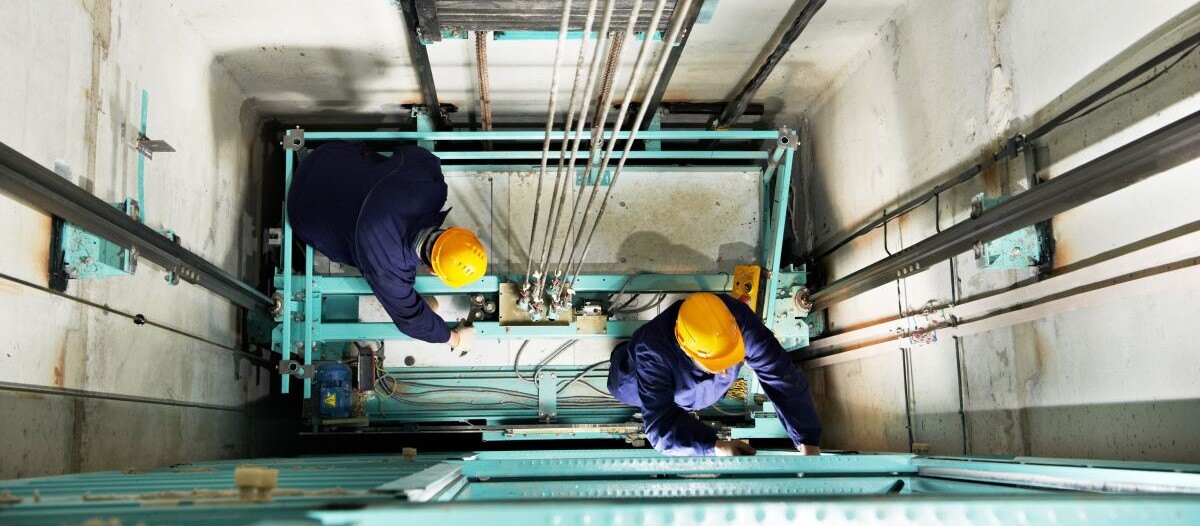Project Delivery of FCAs
What FMs should look for

Facility managers play a critical role in ensuring the functionality, comfort, safety, sustainability and efficiency of their built environment. Facility condition assessments (FCAs) are a great tool to understand where building assets and spaces rank among these categories and identify areas for improvement. However, with the many hats FMs must often wear, most do not have the time and/or bandwidth to conduct a large-scale FCA.
Who makes up an FCA team
FCAs consist of an analysis of a building’s condition as it relates to its age, design, construction methods, materials and systems. Because they depend upon robust, scalable methodologies to assure accurate and consistent information on these elements and systems, FCAs typically involve an assessment team made up of professionals in architecture, engineering and construction, otherwise referred to as AEC professionals. Undertaking an investigation of multiple buildings or real estate portfolios can involve several different consultants, each covering their specific area of expertise.
Most large firms are staffed to conduct these assessments but require a clearly defined scope of work. Otherwise, expectations by key decision makers and/or FMs will not be met. Typically, professionals involved in an FCA project delivery will have expertise in mechanical engineering, electrical engineering, building foundations, basement construction, superstructure, exterior enclosure, roofing, interior construction, stairs, interior finishes, conveying, plumbing or fire protection. They may also specialize in space utilization planning, interior finishes and aesthetics, which are all important facility functions, as there must also be an equal effort toward operational and functional building systems performance of assets.
A key limitation that may be present with the selection of a stand-alone architecture firm is the operational and specific requirements of MEP systems relative to efficiency, maintenance, serviceability and asset optimization. Significant opportunity exists to align FCA proposed solutions with energy retrofit projects, and engineering firms may be best positioned to represent this opportunity. Additionally, mechanical, electrical and control commissioning engineers offer services that can align asset replacement solutions to operational cost savings.
FCA team qualifications
With an understanding of FCA team composition, FMs and owners may be ready to begin their search for an AEC provider. While cost is a leading factor in choosing a provider, it is important to know several other qualifications to look for to ensure that a thorough and extensive assessment is completed with the information and data needed to help achieve organizational goals.
-
A multidisciplinary approach
Recent doctoral research indicates specialty FCA firms that integrate architecture, engineering, capital planning, asset management and energy engineering may be best positioned to deliver life-cycle value to FMs as the next generation of FCA practice emerges. A specialty contractor focusing solely on architecture, engineering or construction may not have the full knowledge, expertise or experience in all areas covered within an FCA. In lieu of selecting a single specialty contractor, an AEC provider with a multidisciplinary approach and composition of team members with varying areas of expertise is better positioned to deliver the most effective FCA services.
Depending on the needs of the FCA, additional sub-consultants could be of value to the overall condition assessment report. For example, if a building built prior to 1970 is being assessed and the owner would like to include an asbestos assessment, a specialized service sub-consultant could be valuable to the FCA team. This scope could drastically improve the cost estimation of assets within asbestos-containing spaces as additional costs are typical in ACM building areas. In most cases, the selected FCA service provider will indirectly select sub-consultants based on an initial customer interview to customize scope.
-
Experience delivering similar FCAs
While experience may seem like an obvious qualification for an AEC provider, it is important to know what questions to ask to fully understand their experience and expertise. FMs and owners should inquire about their credentials, professional licensure and/or certifications. They can also request an experience list of completed FCAs and square footage associated with their FCA portfolio.
It is important to ask a potential AEC provider about similar FCAs they have successfully completed. While each FCA is specialized and tailored toward the customer’s needs, varying building types come with their own unique set of challenges or characteristics. For example, a hospital may utilize different systems and building materials than that of a K-12 school building, and both have specific code requirements to ensure they protect the safety of their occupants. Ensuring that an AEC provider has delivered FCAs to spaces like that of an FM is another way to better understand the thoroughness of their experience and determine if they are the right fit.
-
Technology support for results and long-term planning
Another aspect to consider when choosing an AEC provider is forward-thinking technology to house information covering the facility’s construction and renovation history, maintenance, operations and utilities, and FCA findings. Such technology is also helpful for FMs to assess their assets in one place, evaluate potential investments, define long-term planning, measure facility performance, and ensure any projects conducted, especially those as a result of findings from a condition assessment, are efficient and achieve the organization’s goals.
When completed successfully, FCAs provide facility owners and managers with an in-depth condition report analyzing their building’s age, design, construction methods, materials and systems. FCAs are an important tool for asset management, capital planning, portfolio benchmarking, long-term facility maintenance and risk management. Because of the deep understanding and insight facility owners and managers can gain from a thorough and extensive FCA, it is important they know what qualifications to look for and questions to ask to ensure they receive just that.

Dr. Derek Hillestad, Ph.D., CFM, is a senior facilities analyst of SitelogIQ Midwest. Hillestad has more than 22 years of experience with architectural, mechanical, electrical, and energy systems for new and existing facility environments. Having been involved in over 50 facilities-related projects, his industry knowledge includes a strong background in field survey and analysis functions as well as operational optimization of the facilities portfolio. Hillstead earned his doctorate in construction management from Arizona State University. He is an active IFMA member.
Read more on Operations & Maintenance , Project Management and Technology
Explore All FMJ Topics








